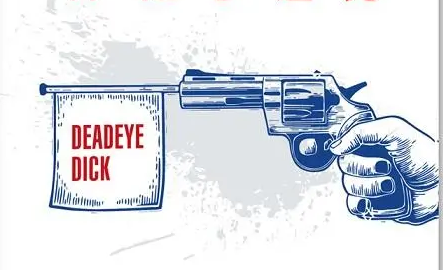Having been engaged in translation for many years, Dick the Sharpshooter can be said to be my first truly independent literary work. I started translating with great joy and great doubt about my ability to take over this book. Vonnegut is a master of black humor widely loved by readers all over the world. This book is also the first time to be published in China. Vonnegut’s previously published works, such as Prisoner Bird, are master translations of Dong Leshan. In contrast, if my translation is not good, and I am spurned by the readers, it is the second, and I mess up the original, it is really a big sin.
So after the publication of Dick the Sharpshooter, I went to read the feedback of readers with anxiety. Fortunately, most readers found the story very interesting. Vonnegut was very interesting, and I was relieved at last.
The first problem encountered in the process of translation is to understand and grasp the images in the novel. In western literature, many images are not commonly used or even difficult to understand by oriental people, such as the “small hole” mentioned in the opening of Dick the Sharpshooter. The author points out in the following article that the “Xiaokong Theory” is a discourse on life by the black people in the deep south of the United States, which is used to refer to human life. But at the beginning, I didn’t know its background. I was deeply confused about it. I couldn’t find relevant information online. I didn’t fully understand it until the author explained it later.
I gained a lot from the whole translation process, so I added a lot of notes to this book, hoping to help readers as well.
Language is also a big test for me. When writing in English, we will use many clauses to form a long sentence. The clauses are indispensable because the supplementary explanation they carry is an important part to ensure the integrity of the novel. However, Chinese pursues the beauty of refinement. Long sentences will make some readers feel a little difficult. It is a great challenge for me to express it in the most beautiful language while respecting the original text. My approach is to jump out of the translator’s identity, look at the translation from a reader’s perspective, and refine the translation after the translation has been proofread at least three times to ensure that the meaning is correct.
Dick the Sharpshooter is not difficult to read. Although it is set against the background of World War II and the post-war war, there is not much grand description of the war and the situation. Instead, it tells an absurd story that even the author seems to be laughing, especially those paragraphs that imitate the script, which can be said to be the essence of absurdity – false justice police abuse lynching, sharp tongued couples slander each other, and unexpected embarrassment at the funeral. There are also cooking recipes that suddenly appear in serious events, which make me laugh when I translate. After laughing, we feel sad – the authority’s pandemonium, the arrogant indulgence, the lynching’s laissez-faire, the government’s appeasement rhetoric, the nuclear radiation crisis… Rudy’s life reflects the bleakness of the world, which makes us tremble after laughing – after all, these are still problems in today’s society.
But we can also think about it in reverse – even if the world is dark and life is rough, you can like Vonnegut to make your own voice with absurd to happy strokes. This is probably a kind of optimism.
[Content Introduction]
This is the main reason why I hate life: it is too easy to make a few big mistakes in life.
On Mother’s Day in 1944, Rudy Watts, 12, was recognized by his father for his good shooting performance. He got the key to the gun room. Immersed in joy, he accidentally killed a pregnant woman with a rifle. This incident became his tragic rite of passage and completely changed the fate of him and his family.
Rudy’s father, an innocent, pedantic and pretentious aristocratic dandy, took this accident as a great opportunity to play a noble hero and satisfy his own desire to express himself. He made a big confession and exaggerated refusal to help, but angered the public, and in return he became a prisoner, ruined his family, and was completely defeated by the cruel reality.
As an adult, Rudy lived a life of self-imposed exile and asceticism. Give up writing to become a pharmacist, escape from the crowd and work on the night shift, take care of parents like servants, have no friends and lovers, and try to atone for the careless mistakes in childhood… But those who really make great mistakes do not need to show any guilt, nor receive any punishment.
Perhaps, “We are still in the dark age. The dark age – is not over yet.”
[Introduction to the author]
Kurt Vonnegut (1922-2007), an American black humorist, is one of the representatives of American black humor literature. His representative works include Prisoner Bird, Dick the Sharpshooter, Slaughterhouse 5, People Without a Country, and so on. His works express the tragic content in the form of comedy, and laugh in the face of disaster, absurdity and despair. This “black humor” style has always been an important characteristic of Vonnegut’s novels. On April 11, 2007, Vonnegut died of illness in Manhattan.
